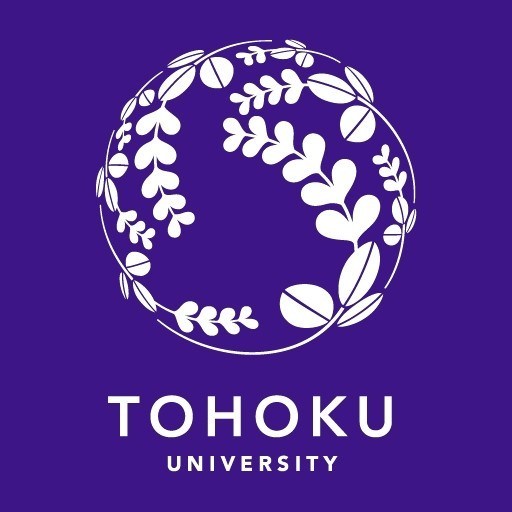Photos of university
Human Security at Tohoku University offers a comprehensive interdisciplinary program dedicated to addressing the complex challenges faced by societies in the modern world. This program is designed to equip students with a deep understanding of the core concepts of human security, including the protection of individuals from threats such as violence, poverty, disease, and environmental hazards. Through a combination of theoretical knowledge and practical skills, students will explore global issues like conflict resolution, disaster management, human rights, sustainable development, and social justice. The curriculum emphasizes a multidisciplinary approach, integrating perspectives from political science, sociology, economics, environmental studies, and international relations to provide a holistic understanding of the factors that threaten human security worldwide.
Students will engage in rigorous coursework, participate in fieldwork, and undertake research projects that foster critical thinking and problem-solving abilities. The program encourages active learning through seminars, workshops, and collaboration with international organizations, government agencies, and NGOs. Graduates will be well-prepared to work in diverse sectors including international development, humanitarian aid, policy analysis, and public administration. They will gain valuable language skills and intercultural competence necessary for effective communication in diverse global contexts.
The Human Security program at Tohoku University also emphasizes the importance of ethical considerations, emphasizing human dignity, gender equality, and human rights in all its modules. With access to a vibrant academic community and excellent research facilities, students will have ample opportunities to contribute to scholarly publications and participate in international conferences. The program aims to cultivate future leaders committed to creating resilient societies and promoting peace, stability, and sustainable development worldwide. Upon graduation, students will be equipped with the knowledge, skills, and global outlook necessary to tackle today’s most pressing human security challenges.
Common Subjects
Each of the 4 Graduate Schools provide 2 subjects in English.
- Social Support for the Health of Aging Population
- Introduction of Infectious Diseases
- Development Economics
- Food Economics
- Consumable Resources and Social Conflicts
- Human Security and Global Society
- Environmental Security and Energy Security
- Hydro-Environment Studies
Major Subjects (8-10 credits)
Each graduate school requires a different number of credits. Students must confirm that number individually in the school to which they belong.
Master's Thesis and Seminar (10 credits)
This is compulsory for all students. Supervisors can be provided.
Voluntary and Additional Subjects
Includes special lectures provided by researchers and experts from overseas, international internships, and study tours.
- Bachelor's degree
- Basic academic ability: Grade point average (GPA) 2.30 or higher out of 3.0
- English proficiency: TOEFL (iBT: 79), IELTS (6.0), etc.
- Entrance examination Fee JPY 30,000
- Entrance Fee JPY 282,000
The financing studies for the Human Security program at Tohoku University are designed to provide students with comprehensive support options to facilitate their education and research activities. The university offers a variety of scholarships, grants, and financial aid programs aimed at international and domestic students enrolled in the program. Scholarships are available based on academic achievement, financial need, and specific eligibility criteria set by the university and various funding bodies. Some of these include the MEXT Scholarship for Japanese government-sponsored students, which covers tuition fees and provides a stipend for living expenses. Additionally, Tohoku University administers in-house scholarships such as the Tohoku University International Student Scholarship, which supports students facing financial hardship. There are also research assistantships and teaching assistantships that provide students with opportunities to earn stipends by assisting faculty members with research projects or teaching responsibilities.
Students are encouraged to apply for external funding options as well, including scholarships from international organizations, Japanese government agencies, and private foundations aiming to promote global education and research initiatives. The university's financial aid office provides guidance and support services to assist students in identifying suitable funding sources and completing application processes. Moreover, Tohoku University promotes internal loan programs in collaboration with financial institutions to enable students to access short-term or long-term loans if necessary. Tuition fees are recorded annually and are eligible for payment through various installment plans to ease financial burden.
International students are especially encouraged to explore various scholarship opportunities designed specifically for their demographic, including those offered by the Japanese government and international organizations committed to fostering global understanding through academic exchange. The program's financing studies are structured to ensure that financial difficulties do not impede student participation, emphasizing inclusiveness and accessibility. Overall, the financial support ecosystem at Tohoku University is comprehensive, aiming to assist students in successfully completing their Human Security studies with minimal financial stress, thereby enabling them to focus on their academic and research pursuits.
The Human Security program at Tohoku University is an interdisciplinary field that aims to address complex global challenges by integrating perspectives from political science, international relations, economics, human rights, and development studies. The program emphasizes the importance of safeguarding individuals and communities from threats such as violence, poverty, environmental degradation, and health crises, thereby promoting peace and stability on a local, national, and international scale. Students in this program are exposed to a comprehensive curriculum that covers topics including conflict resolution, disaster risk management, human rights advocacy, sustainable development, and international cooperation. The program is designed to cultivate critical thinking, cross-cultural communication skills, and practical problem-solving abilities, preparing graduates for careers in government agencies, international organizations, NGOs, and research institutions dedicated to human security issues. Tohoku University provides a vibrant academic environment with access to cutting-edge research facilities and opportunities for fieldwork and international exchange programs. Faculty members are renowned experts in their respective fields, contributing to innovative research and policy formulation. The program also encourages students to engage with real-world issues through internships, seminars, and collaborations with stakeholders involved in humanitarian and development initiatives. The institution's commitment to fostering global leaders in human security underscores its focus on interdisciplinary approaches, ethical considerations, and sustainable solutions. By completing this program, students gain a deep understanding of the multifaceted nature of human security and acquire the skills necessary to develop effective policies and strategies aimed at improving human welfare and resilience worldwide.






